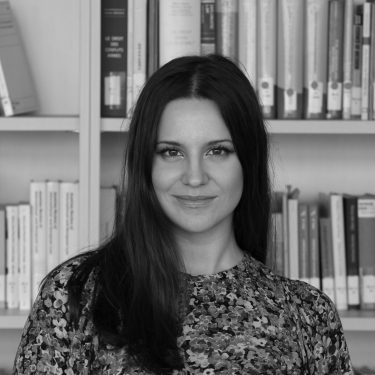As the end of the calendar year is approaching, a new beginning at our blog has been marked. Since last Friday, our team has officially grown much bigger, and 12 wonderful new members have joined our editorial team. Following a recent call for new team members, over 70 applications reached our email address, and we are deeply grateful for each and every one of them. Nonetheless, we had to make a tough decision and we are now in the position to warmly welcome 12 new members, whom you will soon virtually meet (whether via email or through our editorials and blogposts). What a fascinating beginning to mark the end of the year!
During the past month, another beginning was announced, that of the reflectiÖns symposium. The latter is a novel open-ended review format on the blog, which aims to explore how different publication formats can best complement each other. The review format highlights how blogposts can function as a prism and junction of scholarly debate by making visible and connecting scholarship of the past with ideas of the future. For reflectiÖns we look forward to reading your proposals for scholarly pieces to be featured and discussed on the blog or your response to the calls for reflectiÖns that we will be issuing.
The broad thematic range of the blogposts published on our blog during November allowed us to get an understanding of various current international law-related developments. First, Robin Ramsahye stressed that sound legal analysis must prevail over other rhetoric, especially when it comes to the ongoing Israeli-Palestinian conflict. Vandita Khanna then explored the application of Article 14 of the ECHR in the recent ECtHR jurisprudence and underlined that a re-framing can best inform the court’s task of examining Article 14 complaints in conjunction with other Convention guarantees. Subsequently, Eric Rücker and Kai Budelmann assessed how the law of armed conflict on cultural property addresses Russia’s allegations about the temporary protection of exhibits against the supposed shelling and looting by the Ukrainian armed forces, while Irene Miano examined the ICJ’s role as an inclusive institution and reflected on the impact of the recent amendments of the court’s Rules for the ICJ’s institutional image. Meanwhile, during our most recent podcast, Erik Tuchtfeld spoke with Lys Kulamadayil about the UN Convention on the Rights of Persons with Disabilities and critically looked at discriminatory structures in legal scholarship.
A book review symposium also took place on our blog during the past month as various scholars got together to reflect on Panos Merkouris’, Jörg Kammerhofer’s and Noora Arajärvi’s edited volume “The Theory, Practice, and Interpretation of Customary International Law”. In their reflections, Monica Garcia-Salmones, Eirik Bjorge, Orfeas Chasapis Tassinis and Outi Korhonen engaged with contributions from different parts of the book and commented on the ideas expressed therein, while the symposium closed with the editors’ response to the reviewers’ remarks. Moreover, Hendrik Simon interviewed Claire Vergerio on her book, “War, States, and International Order”, in the context of the symposium ‘International Law and the Political’.
Additionally, Philipp Glahé and Alexandra Kemmerer reflected on the 100 years of history of the Max Planck Institute for Comparative Public Law and International Law, while Nora Salem shared her thoughts on the implications of ‘fearing Israel’s response as well as the response to the response by the international community’ for teaching international law to students generally, and specifically to students in the Middle East. Finally, Davit Khachatryan delved into the exodus of Armenians from Nagorno-Karabakh from an international criminal law standpoint, while Kajo Kramp, Moritz Drescher, Mette Steffen and Laura Valdivia revisited the Asylum Seekers Benefits Act (AsylbLG) and highlighted the incompatibility of Sections 4 and 6 thereof with the UN Convention on the Rights of the Child.
We hope that you enjoyed the above reads during the past month, and we look forward to sharing with you new ones this December!

Spyridoula Katsoni is Research Associate and PhD Candidate at Ruhr University Bochum’s Institute for International Law of Peace and Armed Conflict (IFHV).
